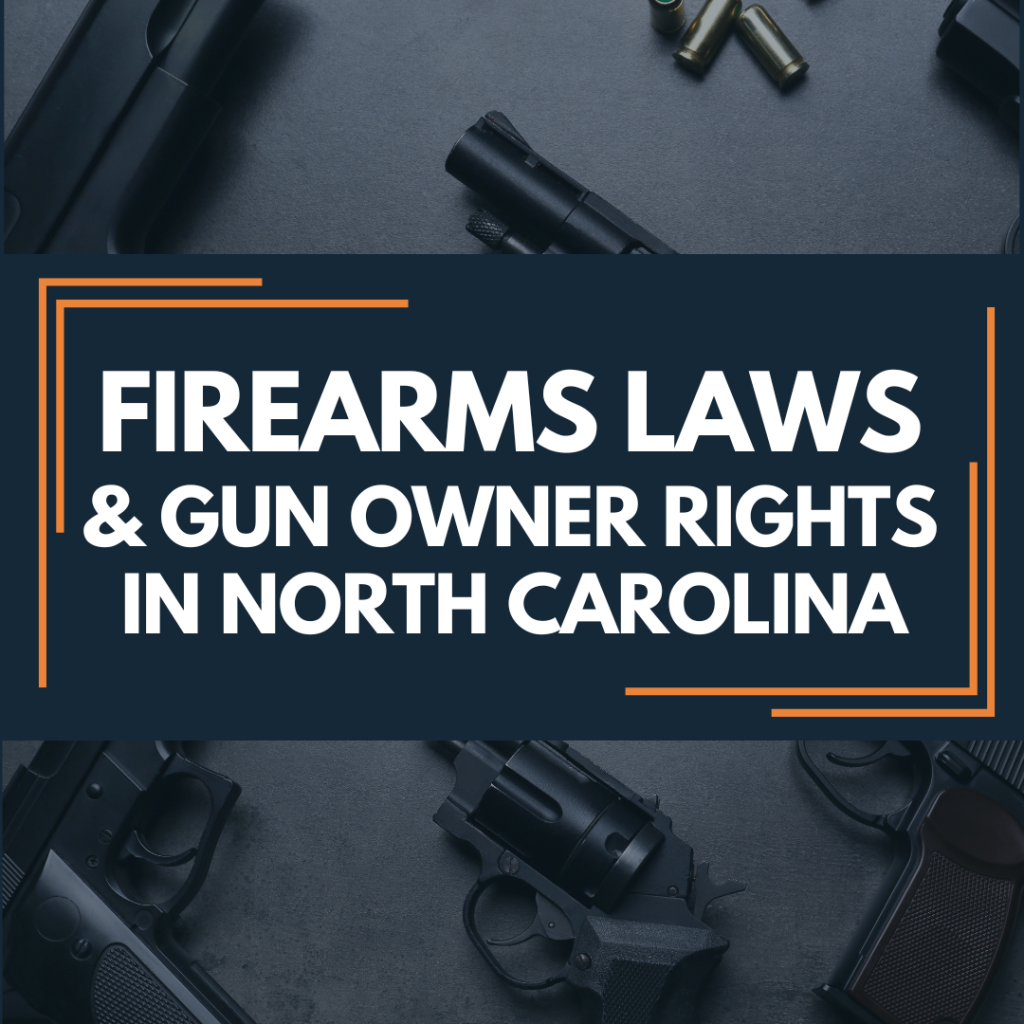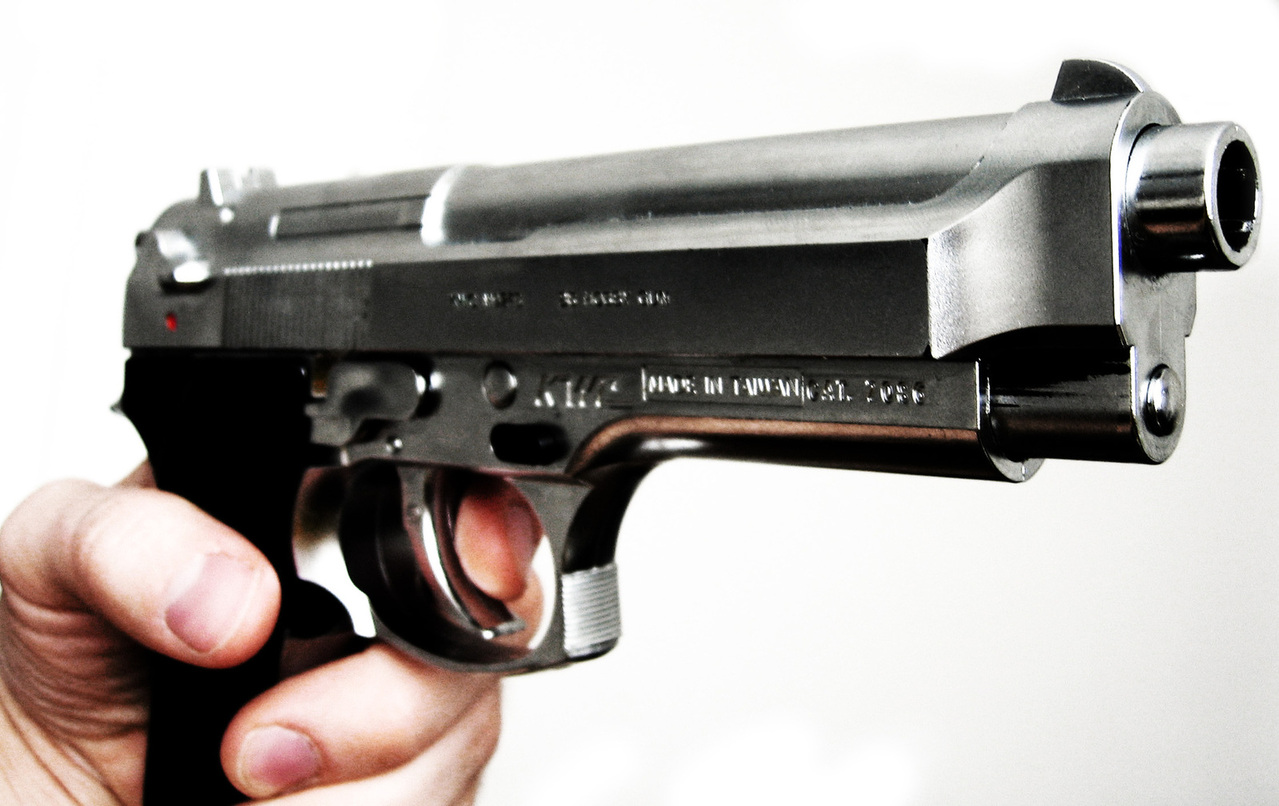 Firearms Laws and Gun Owner Rights in North Carolina
Firearms Laws and Gun Owner Rights in North Carolina
The Second Amendment to the U.S. Constitution provides citizens with the right to keep and bear arms. This means that generally, adults are allowed to purchase and possess firearms as protection. Each state has various laws that pertain to the sale and ownership of guns, along with federal laws that pertain to all those who live in the United States. It is helpful for gun owners to understand the laws that apply to firearms ownership in North Carolina.
North Carolina Gun Laws
Anyone who is age 18 or older is allowed to own a firearm in North Carolina as long as they are not otherwise restricted. A North Carolina resident is allowed to legally purchase and own a rifle or shotgun. You must be at least 21 years of age to purchase or own a handgun. Only a legal resident of North Carolina may purchase a gun in the state. However, anyone may own or possess a gun, even if they are not a resident of the state.
North Carolina repealed a law that previously required a gun owner to register their firearm with the local sheriff. It is no longer necessary to register your firearm.
Fully and Semi-Automatic Weapons
Semi-automatic firearms are legal to purchase and possess in North Carolina. Fully automatic weapons are not allowed, with a few exceptions. Semi-automatic firearms are those that fire ammunition one at a time when the trigger is pulled. The gun then automatically loads another bullet. The term may apply to a variety of types of handguns and rifles.
Fully automatic weapons are those that fire in a continuous manner when the trigger is pulled. The main difference between semi and fully automatic firearms is that a fully automatic weapon requires you to pull the trigger once to begin the firing process, which continues in an automatic fashion as long as ammunition is present. A machine gun is an example of a fully automatic weapon.
North Carolina Restrictions on Fully Automatic Firearms
A person must obtain a permit from the ATF to own or possess a fully automatic firearm. North Carolina law (G.S. 14-409) states that “it shall be unlawful for any person, firm, or corporation to manufacture, sell, give away, dispose of, use, or possess machine guns, submachine guns, and other like weapons.” Additionally, the law states some exceptions:
- Banks, merchants, and businesses may apply for a permit from the county sheriff to possess such a weapon in order to defend their business.
- S. Army members may possess the firearm when it is necessary to carry out their official duties.
- Law officers acting in their official capacity may possess an automatic firearm (includes state, county, and city law officers)
- Use or possession is allowed for approved scientific reasons
- Residents may possess a weapon used in a previous combat (relics and souvenirs)
In addition to North Carolina laws, there are guidelines in place by the ATF (Bureau of Alcohol, Tobacco, Firearms, and Explosives). The ATF specifically prohibits fully automatic firearms, machine guns, parts that convert firearms to machine guns, short-barrelled (sawed-off) shotguns, and suppressors or silencers unless the person has obtained a permit.
Concealed Carry Laws
Concealed carry means that a person carries a firearm in a place that is not visible, such as in a pocket. North Carolina requires gun owners to obtain a concealed carry permit. Failure to have a concealed carry permit could result in gun charges if you are found to be concealing a weapon. Concealment includes carrying a firearm on your person as well as in your vicinity, such as in the glove compartment of your vehicle.
North Carolina allows you to carry a handgun in your vehicle as long as it is visible, such as located on the passenger seat. The gun cannot be located in a place where it is accessible to anyone other than the gun’s owner. Concealed carry is not allowed in schools. However, a new law allows concealed carry in churches.

Purchasing a Firearm in North Carolina
In order to purchase a firearm in North Carolina, a person must be at least 18 years old, or 21 years old for a handgun. The person must be a resident of North Carolina to buy a firearm in the state. The buyer must provide valid identification, such as a driver’s license. In addition, the buyer cannot have a felony record.
As of March 2024, North Carolina no longer requires a background check prior to purchase. Background checks were previously conducted through the sheriff’s office; however, owners are no longer required to register their firearms. Firearms dealers are still required to do background checks through the National Instant Criminal Background Check (NICS) system.
Firearms charges can be serious and require a vigorous defense. If you are facing gun-related charges, contact us today at Arnold & Smith, PLLC, at (704) 370-2828 to schedule a consultation.
The criminal defense attorneys at Arnold & Smith, PLLC make it their mission to zealously defend their clients on a wide range of criminal matters at both the state and federal levels. These matters may include any charge from traffic offenses; DWI/DUI; drug charges (from simple possession to possession with intent to distribute and trafficking); gun permit denials; weapons offenses; and property crimes (larceny, breaking and entering, robbery, fraud, embezzlement, white collar offenses); to sexually related offenses (indecent exposure; sexual assault, crimes against nature, removal from sex offender registry); and violent crimes (domestic violence; assault; manslaughter; homicide, murder). Other legal issues that Arnold & Smith, PLLC criminal clients may be facing include restraining orders, restraining order and probation violations, expungements; appeals; and immigration issues related to criminal charges. Our criminal defense attorneys are passionate about ensuring that individuals empower themselves by being informed about their constitutional rights and stand at the ready to fight in the defense of those facing criminal charges.
Source:
https://constitution.congress.gov/constitution/amendment-2/
Image Credit:
https://www.freeimages.com/photo/air-soft-gun-1-1500175
See Our Related Video from our YouTube channel:
https://www.youtube.com/user/ArnoldSmithPLLC?feature=watch
See Our Related Blog Posts:
 Charlotte Criminal Lawyer Blog
Charlotte Criminal Lawyer Blog


